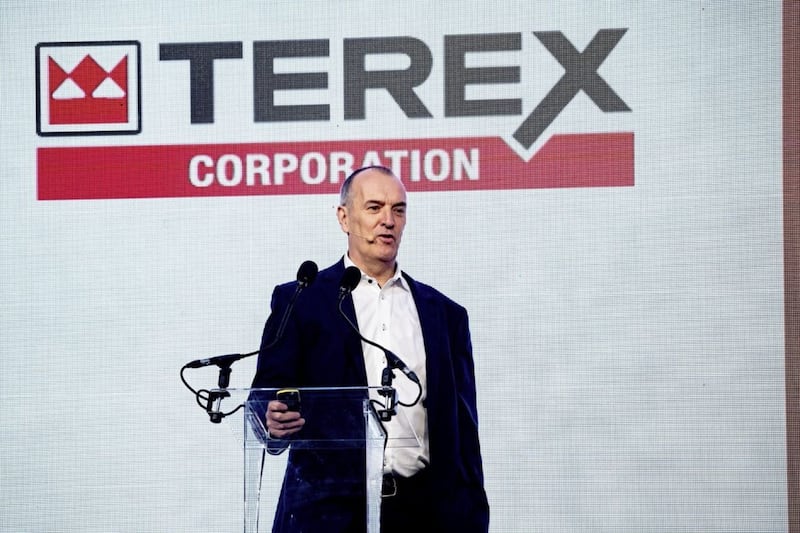NORTHERN Ireland - and in particular Mid-Ulster - has underlined its position as the global hub for the design and manufacture of world-leading materials handling and recycling equipment.
For in the space of just a few weeks, four companies in the sector have filed annual results with Companies House which show their combined turnover has soared to £560 million and gross profit is more than £80 million.
And between them the four companies - which is just a snapshot of those in the sector - provide jobs for 2,200 people and pay annual wages of around £80 million.
The Omagh-Dungannon hinterland is home to a unique cluster of solution providers who excel at engineering, are innovative and are truly global, and their world-class products have applications across different sectors including construction, mining, quarrying, demolition, ports, agriculture, airports and recycling.
Much of the sector in that area has spawned from the success from its formation in 1966 of Powerscreen, which was sold in 1986 and was eventually purchased by the New York-listed Terex Corporation in the 1990s.
Terex GB Ltd, whose UK operations are largely centred on huge manufacturing sites in Omagh and Dungannon, increased its sales in 2021 by nearly a tenth of a billion pounds from £318.4 million to £413.9 million.
Just around £76m of Terex's sales are generated in the UK, with £92m in Europe and the bulk (£246m) coming in global markets, mainly Asia and the southern hemisphere.
Pre-tax profit at the company - whose employee numbers were largely static at 1,735 and whose wages bill sits at £60.5m - soared from £33.4m to £56.2m, and after tax, Terex banked £48.6m.
Cookstown-based screening giant CDE Global, meanwhile, saw its sales jump from £64.3m to £97.3m in the last calendar year.
Pre-tax profit rose from £5.8m to £7.2m, and after taxes its bottom line profit was £6.9m (2020: £5.8m).
Founded in 1992 and controlled by Tony Convery (61) and his wife Rosemary, CDE has designed, manufactured and commissioned more wet processing plants than any other company in the world, and has delivered more than 1,000 projects.
The accounts showed that it has grown its staff numbers to 315, and its wages bill rose to £14.7m. The highest paid director's salary almost doubled to £505,481.
Also filing results in the last month have been smaller players in the sector, RM Dungannon Ltd (previously Maximus Crushing and Screening) and also Conexpo (NI) Ltd in Belfast.
RM (Rubble Master) at Coalisland Road in Dungannon, whose customer-base is international and emerging markets including South America, Australia and the US, reported that sales were up from £9.4m to £15.9m.
The company - which since 2018 has been part of the Austrian Linz-headquartered RM Group - did report a modest gross profit, but after taxes and administrative expenses, it posted a bottom line loss of £1.2m.
RM has a staff of 120 (up from 91 in 2020) and had a wages bill of £4.2m.
Meanwhile aggregates firm Conexpo in Belfast, which uses stone quarried in Co Down to surface many of mainland Europe's busiest roads, saw its sales rise last year for the fifth year running - up from £29m to £31.1m.
Conexpo, whose core business is supplying high polished stone value (PSV) aggregates, saw its pre-tax profit rise marginally to £5.7m, but after a higher tax bill than the previous year, its bottom-line profit for the financial year was £4.4m against £4.7m a year earlier.
The accounts show that it has 39 employees and its wages for the year were £1.7m.
For more than 50 years mobile equipment from Northern Ireland has provided solutions for the processing of sand, aggregate and other bulk materials, and recently this technology has become a solution of choice in reclaiming value from waste which would otherwise end up in landfill.






